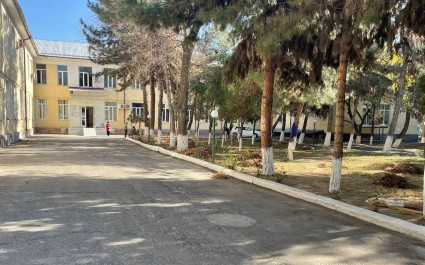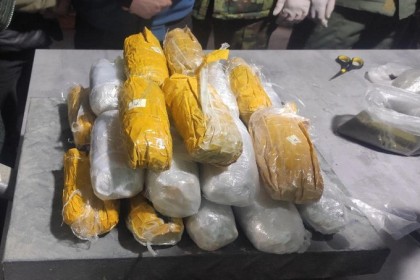Prime Minister Abdulla Aripov, by his Oct. 10 resolution, approved the updated Rules for Carriage on Tashkent metro, the Ministry of Justice said on Thursday.
The old rules were an internal document; now they are approved by the Cabinet of Ministers and are aligned with the Transport Law.
The Rules includes the definitions: “station platform”, “ticket”, “passenger”, “inspection”, “cargo” and others.
The document supplements and clarifies the safety requirements in the metro. Previously, passengers had to obligatorily show hand luggage and baggage, including packed or sealed boxes and other items, for inspection, and also, at the first request of metro security or police officers, had to allow searches.
The Rules now state that passengers and others must show their luggage for inspection based on the lawful request of officers. While, persons who come under suspicion of being wanted or who behave suspiciously during the search may be searched in person in the manner prescribed by law.
Also, it has been established that if they resist inspection on the basis of a legal request from police officers, passengers and other persons will not be allowed into the metro.
At metro surrounding areas, it is prohibited:
- all types of activities that require the use of flammable, explosive substances and pressure devices, as well as the construction and organization of relevant entertainment facilities;
- collecting garbage, burning and making fires at a distance of less than 25 m from metro facilities, including above-ground ventilation equipment;
- parking of vehicles running on gas (except for vehicles equipped with an automatic fire extinguishing system and special open parking areas under overpasses) and placement of vehicles loaded with flammable materials under overpasses (in parking lots).
The following is prohibited at the metro:
- climb onto parapets, fences, and also jump over them;
- being intoxicated with alcohol, narcotic drugs, psychotropic substances and their analogues, or entering the subway while intoxicated (the old rules prohibited entering the subway in an alcoholic or narcotic state, but there was no ban on their use inside the facilities);
- smoking tobacco, electronic cigarettes and nasvay (in the old rules there is a ban on smoking without specifying tobacco products that cannot be consumed);
- use of open fire, pyrotechnics (fireworks, firecrackers, etc.) on the metro area and in carriages;
- being without shoes or clothing in the metro area;
- entering the station in clothes and shoes, as well as with luggage, which can stain the clothes of passengers, carriages, structures and devices, as well as with a bicycle (except for folding bicycles), moped, scooter and other means of transportation. Exceptions include children's bicycles, strollers and wheelchairs, musical instruments, piercing, cutting and breakable objects, sleds, skis and fishing rods in cases;
- consumption of food products that can stain the clothes of passengers at the station and in the carriages;
- carrying in balloons filled with flammable gases;
- motorcycles and scooters, the use of unmanned aerial vehicles on the territory of the station, its territory and underground passages adjacent to the station;
- performing acrobatic and sports exercises, playing various types of sports balls on the territory of the station and in the carriages;
- video and photography in service (technical) premises and special facilities;
- passengers are prohibited from going onto the railway tracks of the station, entering technological rooms and tunnels, climbing and walking on the roof of cars, climbing between cars and other parts of trains, and entering the driver’s cabin;
- passengers are prohibited from entering fenced metro facilities and industrial areas;
- children are not allowed to put dirty shoes and large luggage on seats;
- damage to subway and train infrastructure;
- inscriptions, images, information and advertising materials on metro infrastructure facilities and on the external (internal) surfaces of rolling stock without coordination with the metro management;
- trade on station platforms and carriages
- committing actions that disrupt the operation of the metro, or preparing to commit them, including deliberate dissemination of false news about situations or actions that pose a threat to the life and health of passengers;
- carry cutting and fragile objects, sleds, skis, skates and fishing rods without a cover;
- cross the prohibited lane at the station before the train arrives:
- perform actions that interfere with the operation of escalators, sit on them and place luggage.
What can't you take on the subway?
What cannot be carried into the metro:
- all types of firearms and piercing weapons without the appropriate permit;
- all types of toxic and poisonous substances without appropriate permission;
- flammable, explosive substances;
- compressed and liquefied gases;
- astringent, odorous and caustic substances transported without sealed containers and containers.
What requires permission from the metro management
With the written consent of the metro management, it is permitted to:
- conduct professional photo and video shooting at the station;
- use of musical instruments and sound amplification devices in carriages and subway infrastructure (except for the use of hearing aids and headphones);
- holding performances at stations, as well as entering the metro in theatrical clothes and clothes of fairy tale characters;
- holding cultural, sports, entertainment, political and other events.
Rights and obligations of passengers
Passengers have the right to:
- transport free of charge children under 7 years of age, children's bicycles, baby strollers and wheelchairs, musical instruments, piercing, cutting and breakable objects, sleds, skis and fishing rods in a case;
- persons with disabilities and disabilities can use the technical means of the metro (elevators, lifting devices for wheelchairs and other equipment), and receive assistance from metro employees if necessary;
- for amateur photo and video shooting of stations (with the exception of some places indicated above);
- use medical stations at stations;
- use telephones and means of communication;
- carry free baggage whose size in the sum of three dimensions is no more than 200 cm: width - up to 60 cm, length - 70 cm, height - 70 cm.
- if necessary, with the permission of metro workers, use a stopped escalator.
Passenger responsibilities have remained virtually unchanged.
Metro workers had their rights and responsibilities expanded, including the right to stop all passengers trying to pass through a checkpoint using documents that are not genuine, invalid or do not entitle them for free travel.














